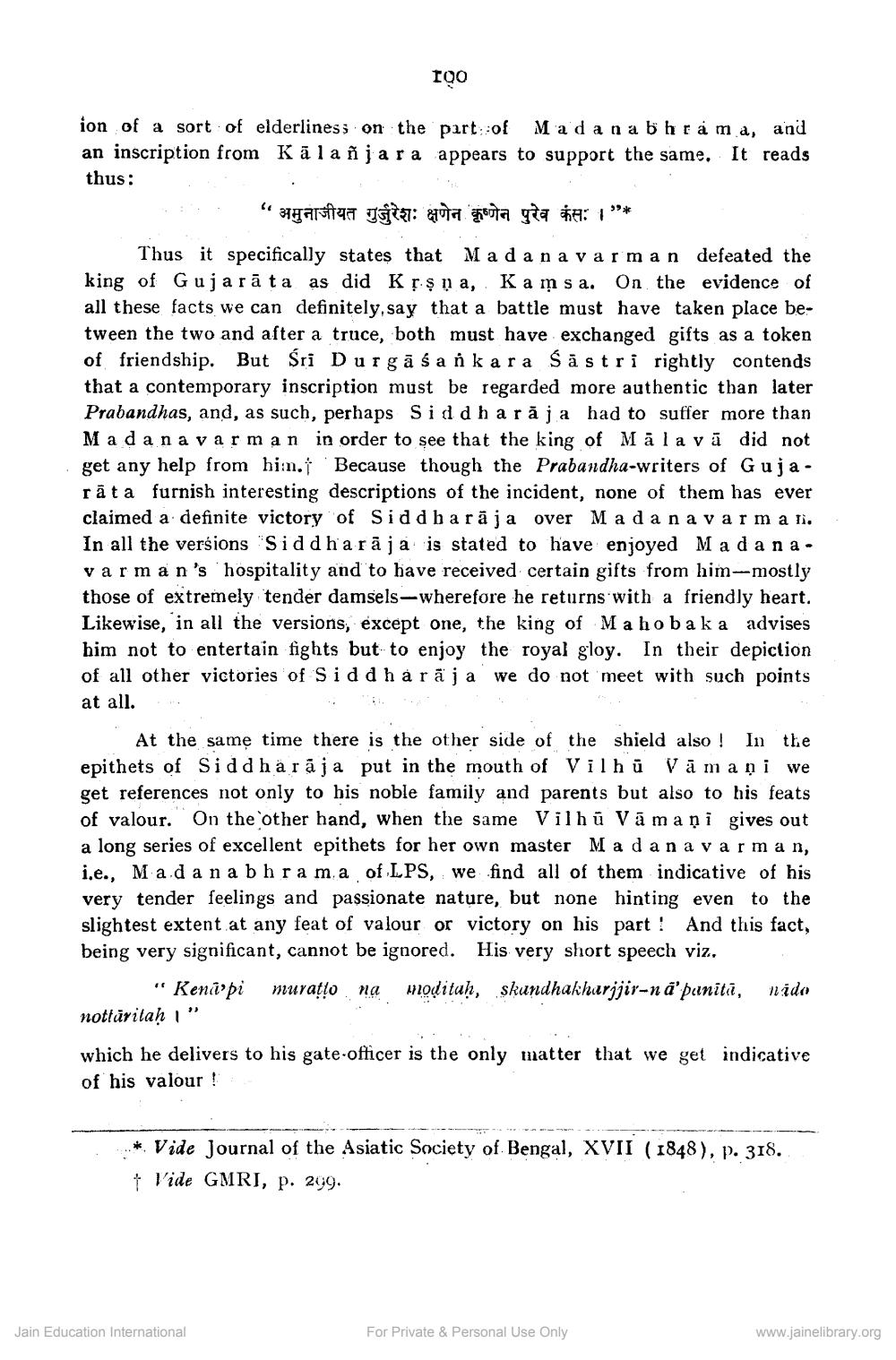________________
FQO
ion of a sort of elderliness on the part of Madanabhrama, and an inscription from Kālaħjar a appears to support the same. It reads thus:
. .
"Barstaa ufitat: auta gotta gia #a: 1*** Thus it specifically states that Mad a n a va rima n defeated the king of Gujarāta as did K șs n a, Kam sa. On the evidence of all these facts we can definitely,say that a battle must have taken place between the two and after a truce, both must have exchanged gifts as a token of friendship. But Sri Durgā sa n kara Šāstri rightly contends that a contemporary inscription must be regarded more authentic than later Prabandhas, and, as such, perhaps Siddharaja had to suffer more than Ma dana var man in order to see that the king of Mala vā did not get any help from hin. 'Because though the Prabandha-writers of Gujarāta furnish interesting descriptions of the incident, none of them has ever claimed a definite victory of Siddharāja over Ma da na varma li. In all the versions "Siddha raja is stated to have enjoyed Ma dana. var man's hospitality and to have received certain gifts from him-mostly those of extremely tender damsels-wherefore he returns with a friendly heart. Likewise, in all the versions, except one, the king of Mahoba ka advises him not to entertain fights but to enjoy the royal gloy. In their depiction of all other victories of Siddharāja we do not meet with such points at all.
At the same time there is the other side of the shield also ! In the epithets of Siddharāja put in the mouth of Vilh u Vāmaņi we get references not only to his noble family and parents but also to his feats of valour. On the other hand, when the same Vilhū Vāmaņi gives out a long series of excellent epithets for her own master Madan a varman, i.e., Mada na bhrama of LPS, we find all of them indicative of his very tender feelings and passionate nature, but none hinting even to the slightest extent at any feat of valour or victory on his part ! And this fact, being very significant, cannot be ignored. His very short speech viz.,
" Kenapi muratło na mloditaḥ, skundhakharjjir-nä'punita, nido notturitaḥ 1 "
which he delivers to his gate officer is the only matter that we get indicative of his valour!
* Vide Journal of the Asiatic Society of Bengal, XVII (1848), p. 318. † Vide GMRI, p. 299.
Jain Education International
For Private & Personal Use Only
www.jainelibrary.org




